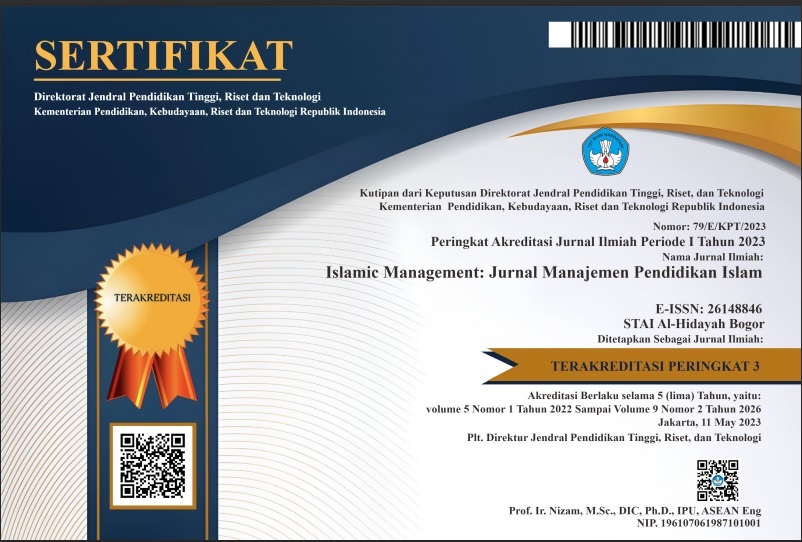ISLAMIC EDUCATION TEACHERS' EFFORTS IN INSTILLING ISLAMIC VALUES THROUGH PROPHET AND COMPANION STORIES IN THE CLASSROOM
DOI:
https://doi.org/10.30868/im.v8i01.7791Keywords:
Teachers' efforts, Islamic values, stories of prophets, companionsAbstract
Instilling Islamic values in students is one of the main objectives of Islamic religious education (PAI). Stories about the Prophet and his companions are one of the effective methods to convey these values. This study aims to examine how PAI teachers use stories of Prophets and Companions as learning media in the classroom, as well as their impact on students' understanding and behavior. This research uses a qualitative approach with a case study method in one of the elementary schools in Indonesia. Data were obtained through observation, interviews, and document analysis. The results show that the use of Prophet and Companion stories can increase students' interest in learning religion and help them understand and internalize Islamic values. This article suggests the development of a story-based learning module to improve the effectiveness of PAI learning.
References
Al-Ghazali, I. (2013). Ihya Ulumuddin. Beirut: Dar Al-Kutub.
Hasan, A. (2015). Metodologi Pendidikan Islam. Jakarta: Prenada Media.
Mahmud, M. (2017). Pembelajaran Berbasis Nilai Keislaman. Bandung: Alfabeta.
Nasution, S. (2014). Metode Penelitian Kualitatif. Jakarta: Bumi Aksara.
Rahman, T. (2016). Cerita Nabi dan Sahabat sebagai Media Pendidikan Islam. Surabaya: Al-Hikmah.
Downloads
Published
How to Cite
Issue
Section
Citation Check
License
Copyright (c) 2025 Mohammad Zuhal Fathur Rohman, Moch. Chotib, Abdul Muhith

This work is licensed under a Creative Commons Attribution-ShareAlike 4.0 International License.
Authors who publish with this journal agree to the following terms:
- Authors retain copyright and grant the journal right of first publication with the work simultaneously licensed under a Creative Commons Attribution License that allows others to share the work with an acknowledgment of the work's authorship and initial publication in this journal.
- Authors are able to enter into separate, additional contractual arrangements for the non-exclusive distribution of the journal's published version of the work (e.g., post it to an institutional repository or publish it in a book), with an acknowledgment of its initial publication in this journal.
- Authors are permitted and encouraged to post their work online (e.g., in institutional repositories or on their website) prior to and during the submission process, as it can lead to productive exchanges, as well as earlier and greater citation of published work (See The Effect of Open Access).






